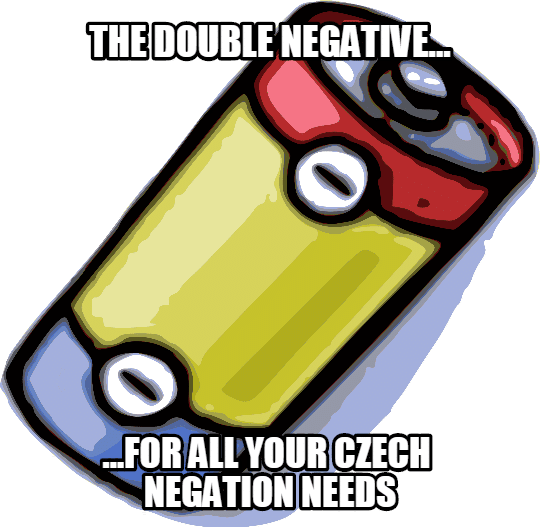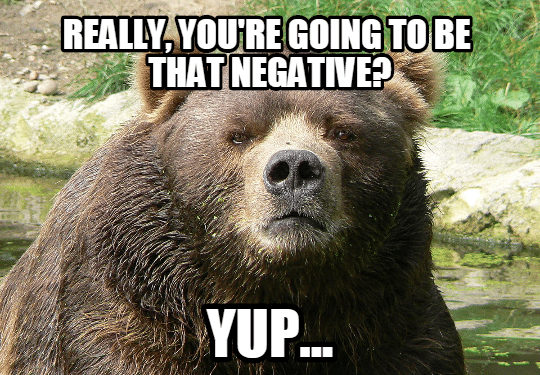6.10 – Negated Indefinite Expressions
Now we’re going to learn about negated indefinite expressions. They are based off of the question words. The important thing for you to remember is that you must also negate the verb as well.
You’ve probably learned that two negatives make a positive and have used that as a way to talk about why sentences like I don’t need no money aren’t technically grammatical in English. However, in Czech it is absolutely the rule, and two negatives definitely do not make a positive:
|
Question word |
Negated Expression ( negated verb) |
Example |
|
co |
nic ‘nothing’ |
Nemám nic k pití. I don’t have anything to drink.
Nic není zadarmo. Nothing is for free. |
|
kdo |
nikdo ‘no one’ |
Nikdo tady není. No one is here.
Neznám tady nikoho. I don’t know anyone here. |
|
kde |
nikde ‘nowhere’ |
Moje klíče v bytě nikde nebyly. My keys weren’t anywhere in the apartment. |
|
kdy |
nikdy ‘never’ |
Martina nikdy nevaří. Martina never cooks.
Nikdy neběhám. I never run. |
|
jak |
nijak ‘in no way’ |
Ten svetr se mi nijak nelíbí. I don’t like that sweater at all. |
|
jaký |
žádný ‘no/any _____’ |
Žádné auto tady není dobré. No car here is good.
Nemám žádné peníze. I don’t have any money. |
|
který |
žádný ‘no/any _____’ |
Tady nejsou žádní studenti. There are no students here.
Žádní moji kamarádi nemluví japonsky. None of my friends speak Japanese. |
In fact, Czech will even put multiple negative items into the same sentence:
Honza nikdy nechce nic k pití.
Honza never wants anything to drink.
Nikdo nikdy nechtěl žádné pomeranče.
Nobody ever wanted any oranges.
Images used in this document come from these sources.

